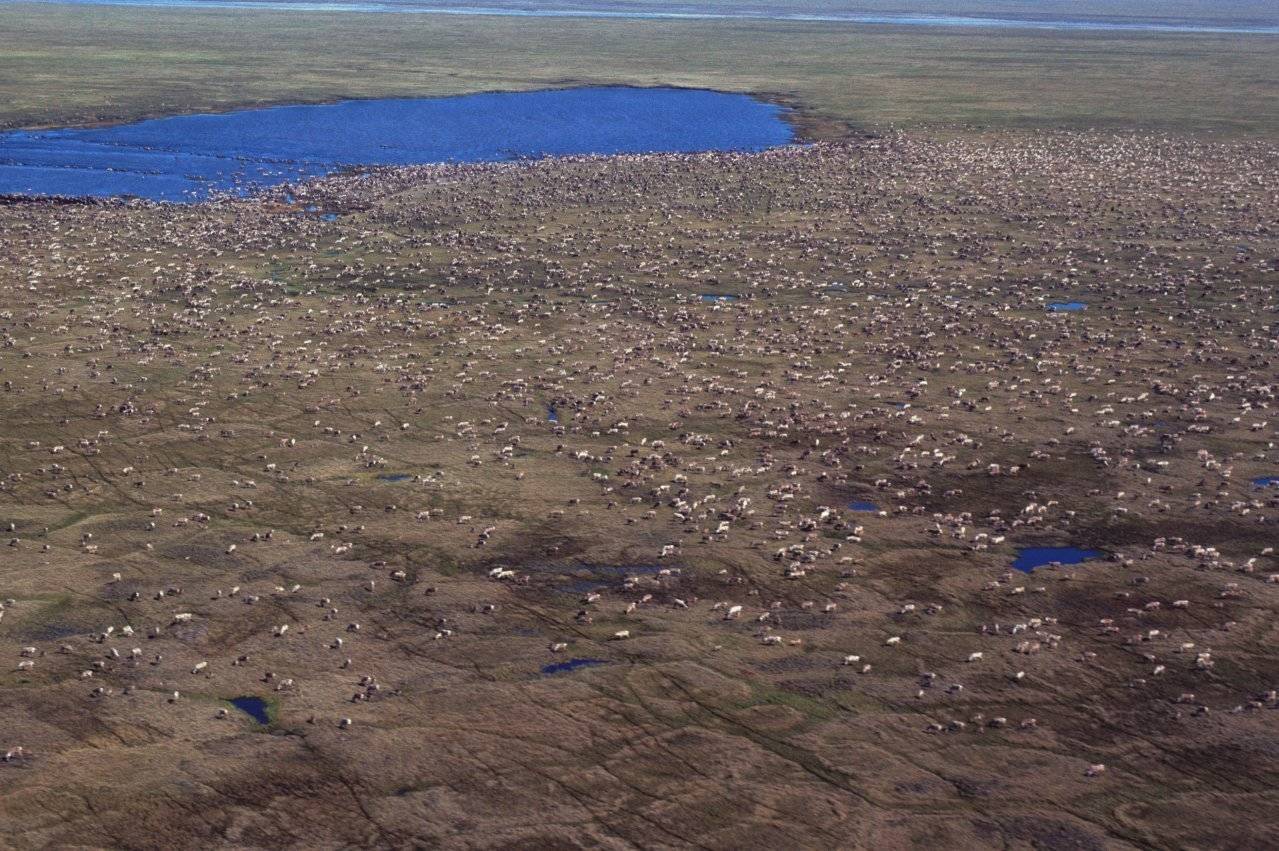“I walk in two worlds,” Sam Alexander said at the start of his testimony before the U.S. Senate Energy and Natural Resources Committee. “Your world and the Gwich’in world.” To most people in our world, the Arctic National Wildlife Refuge is either a world-class wilderness or the lid on several billion barrels of oil. In his peoples’ it’s “the sacred place where life begins.”
Alexander was the only Alaska Native at the committee hearing who spoke against drilling in Area 1002 of the refuge. The Senators he hoped to convince didn’t seem interested in his views. Not one of them asked him a question.
Ten other Alaskans testified, including Gov. Bill Walker, U.S. Sen. Dan Sullivan, R-Alaska, and U.S. Rep. Don Young, R-Alaska. And there were four other Alaska Natives, including Lt. Gov. Byron Mallott.
Before any of the testimony began, however, U.S. Sen. Maria Cantwell, D-Washington, the ranking minority member, lodged a complaint that not enough individual tribal members were invited to the hearing. That’s because Alexander was the only native who wasn’t speaking partly from a background as an executive in an Alaska Native corporation that supports opening ANWR to oil development.
I’d like to resister my own complaint here that the hearing was really a show trial for both sides. Because like Alexander, Mallott and the others weren’t questioned by a single Senator opposed to drilling.
Cantwell essentially argued that the tribal members speaking on behalf of the corporations were walking in her world, the proverbial ‘white man’s way,” more than from the traditional Native American belief she expressed “as being “stewards of the mother earth.”
But can anybody represent the two worlds equally?
Alexander’s experience as a Green Beret who served in the Iraq War certainly gave him the credentials to try. When asked to elaborate on the sacredness of the land, he explained the Gwich’in “recognize the wealth we have as a people and it is nothing you can give us,” adding “when we talk about the land, we talk about the caribou, it is in reverence to them.”
On the other side though, he admitted having a hard time understanding the value of economic development. And he wondered why any Native would chose to work a 40-hour week “so they could turn around and go buy organic food.”
Richard Glenn, an executive vice-president for the Arctic Slope Regional Corporation, said he didn’t care to debate Alexander’s view. “All lands are scared,” he said. “They contain the bones of our ancestors,” ancient and in living memory.”
Where Alexander spoke about life being birthed from the land, by defining the sacred in terms of those who walked his world and have since departed, Glenn was referencing the end of life as we know it.
Clearly, both perspectives deserve our respect. And while I don’t mean to suggest Glenn’s statement represents the limits of his sacred reading of the land, the interpretation he gave has some relevancy to the ANWR debate and how fossil fuels energize our modern world. It places human life at the center, which is more in line with traditional western thought. Everything from the land is here for us now, in the short term defined by line of life ending at the grave.
And that’s all oil offers. It’s powered our world for less than two centuries. We can’t use what we define as our share and promise it’ll be there for future generations. The world’s known resources aren’t enough to keep us going more than 50 years. And measured against American consumption, the 10 billion barrels under Area 1002 would only last a year and a half.
“We take the long view,” Alexander said, “and embrace our traditional ways because they have served us well for a millennia.” The Gwich’in would never imagine creating an export economy where they exchange caribou from their scared hunting grounds for cash. It wouldn’t sustain the world his people walk upon any more than oil will ours.
Unfortunately for the Gwich’in though, none of that matters to Congress or our state government. They’ll dismiss Native American knowledge and traditions like they’ve almost always done. Which may explain why the Alaska Native Corporations are comfortable defending the short view of the cash and commodity economy that’s not part of their traditional culture.
• Rich Moniak is a Juneau resident and retired civil engineer with more than 25 years of experience working in the public sector. My Turns and Letters to the Editor represent the view of the author, not the view of the Juneau Empire.

